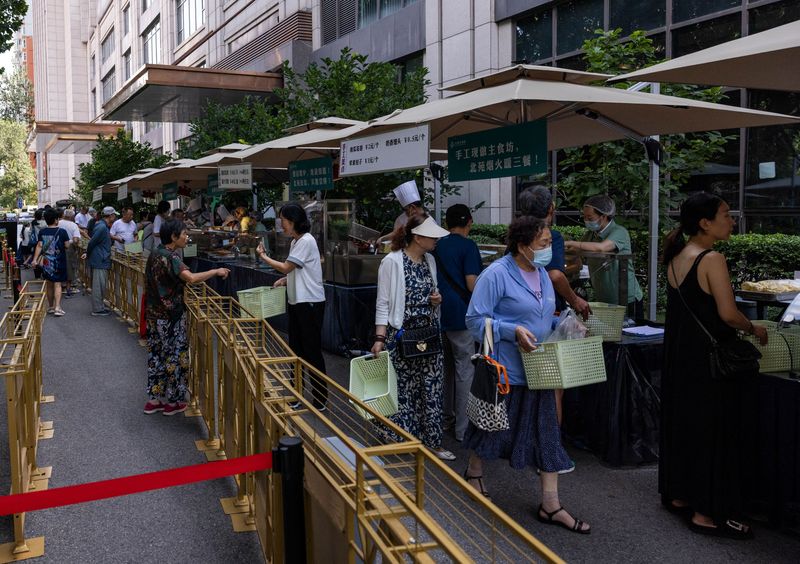Adapting to a New Reality
In an effort to counteract declining revenue, high-end hotels in China are turning to unconventional methods. Beiyuan Grand Hotel in Beijing, for instance, has started setting up street stalls each evening to sell freshly-cooked gourmet dishes. This move comes as Chinese consumers and businesses cut back on spending related to travel, conferences, and banquets.
Anwen Xu, the sales director at Beiyuan, explained that traditional tactics like lowering prices or offering discounts are no longer effective. “These days, it’s not that people will come just because you lower prices or offer discounts — they simply don’t come at all,” she said. The need for new income streams has become critical, especially with the hotel’s sales being hit by weaker consumer demand and reduced corporate and official travel budgets.
A Growing Trend
Beiyuan is not alone in this approach. At least 15 high-end hotels across the country have begun selling food outside, according to social media and Chinese news sites. These efforts reflect broader economic challenges, including a lack of banquet reservations and the impact of austerity measures implemented earlier this year in Beijing. These measures included bans on large group dining and curbs on alcohol consumption among public sector workers and party members.
Analysts suggest that these changes signal deeper issues, such as deflationary pressures that could become entrenched in China’s economy. Consumer prices remained flat year-on-year in July, indicating a slowdown in economic activity. He-Ling Shi, an economics professor at Monash University, noted that high-end dining establishments are making strategic adjustments to survive. “What this phenomenon reflects is that China’s overall economic situation is now facing a fairly significant risk of deflation.”
Economic Challenges and Adjustments
The catering industry has also seen a decline in growth. In June, catering revenue grew by only 0.9% year-on-year, down from 5.9% in May. Additionally, accommodation industry profits in Beijing fell by 92.9% year-on-year in the first half of 2025, according to government data.
Wei Zheng, a staff member at Grand Metropark Hotel in Beijing, mentioned that the hotel began selling street food on July 10. “Many hotels have adopted methods such as selling outside to increase revenue,” he added. The hotel earns an extra few thousand yuan a day through its street food offerings, which include items like braised duck, fish stew, or crayfish.
At Beiyuan, the outdoor stall has proven successful, with the hotel’s signature crispy roast pigeon selling about 130 birds a day since opening on July 28. This is significantly higher than the previous daily average of 80. However, the margin from the outdoor sales is around 10% to 15%, which, while better than average, still falls short of fully offsetting the drop in indoor business.
Changing Consumer Behavior
Yaling Jiang, founder of research consultancy ApertureChina, noted that consumers are seeking value and novelty during economic downturns but remain hesitant when it comes to high-end spending. Shoppers like Seven Chen, who bought barbecue pork, understand the efforts of hotels like Beiyuan but have also been staying in fancy hotels less often than before.
“The main thing is people don’t have enough income,” said Chen, who works in finance and lives nearby. His sentiment reflects a broader trend of cautious consumer behavior.
Other hotels, including the JW Marriott in Chongqing and Hilton Wuhan Riverside in Wuhan, have also adopted similar strategies. While the latter did not comment, a Marriott staffer confirmed that the hotel sells dishes outside from 5 p.m. to 6 p.m., without providing further details.
Brand Value and Survival
The five-star River & Holiday Hotel in Chongqing reported a surge in daily revenue from just a few thousand yuan to 60,000 yuan after setting up food stalls in its car park last month. Marketing and sales manager Shen Qiuya dismissed online criticism about the potential erosion of brand value, stating, “Every industry is facing difficulties this year. Survival is the most important thing. Face isn’t worth anything.”



